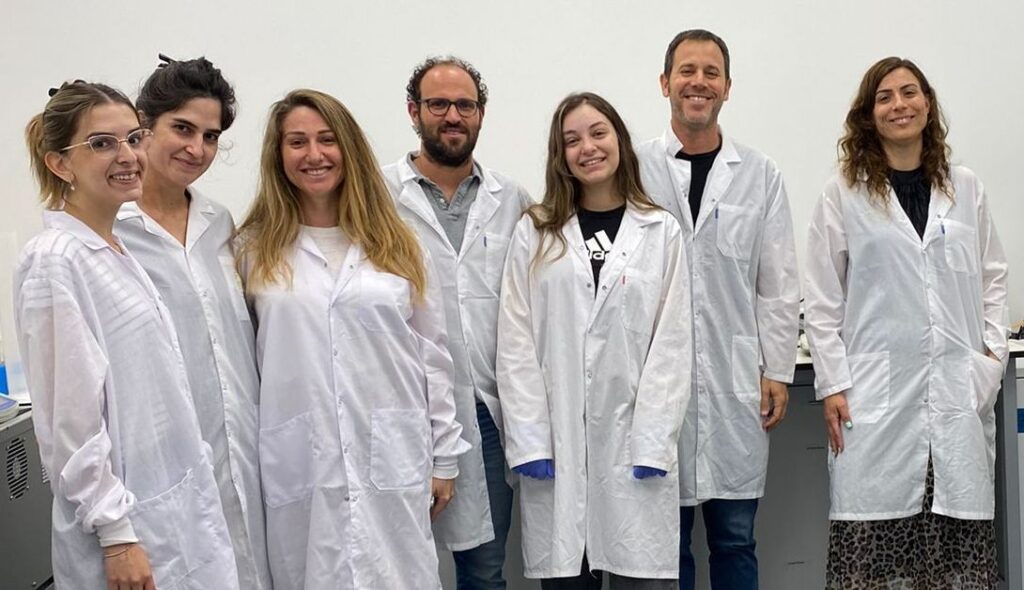Israeli startup Bountica is hoping to revolutionize the food preservation sector with a flavorless protein (branded “ProServatives”) that it claims is effective against a broad range of food pathogens and spoilage bacteria through a mechanism it calls “nutritional immunity.”
Bountica, backed by Israel's Fresh Start incubator, uses precision fermentation to produce “proteins that are part of the human innate immune system,” CEO Dan Shtibel told AgFunderNews. “We're just figuring out how to commercialize this for the food and beverage market.”
The company recently received investment from Sparkalis, the corporate venture arm of bakery giant Puratos, and is now partnering with Puratos to explore potential food applications for its proteins.
Nutritional Immunity
“The basic components of this protein were known to have antibacterial properties,” said Stiebel, who met Bountica last year while he was CEO of a company called Save Foods and joined the startup as CEO on May 1.
“The founders [computational biologist Dr. Maayan Gal, biochemist Professor Zvi Hayouka, and entrepreneurs Fabian Trumper and Shay Hilel] They screened many peptides and discovered a family of proteins that are effective against pathogens such as Salmonella, Escherichia coli, and Listeria monocytogenes. [bacteria] It also works against fungi and yeasts.”
This mechanism of action is called “nutritional immunity,” a defense mechanism the body uses to block invading pathogens from obtaining essential nutrients such as iron and zinc, Stiebel explained. By sequestering these nutrients, Bountica's protein effectively starves the pathogens, preventing their growth.
Making antibacterial agents from microorganisms?
Getting microbes to express antibacterial substances through precision fermentation is inherently difficult because the proteins they produce are potentially toxic to the host, he says. “But our bacteria can do that.” [which Bountica has genetically engineered to express its target proteins] The protein is not secreted into the medium, so it has no effect on the host. Protein expression is intracellular. [the protein remains inside the cell] Once fermentation is complete, we extract the protein from the host.”
Downstream processing (DSP) can be more expensive in precision fermentation systems that rely on intracellular expression (where cells must be disrupted to extract the protein of interest) rather than extracellular expression (where the protein is secreted into the fermentation broth), but Sztybel asserts that Bountica's DSP is not prohibitively expensive.
“Based on the techno-economic analysis we have done, it is not that expensive right now. We are still optimizing the process, but we believe we can achieve a competitive price in the market. In addition, we are also leveraging CMOs. [contract manufacturing organizations] We won't be making large capital investments to expand our scale.”
 The Bountica Team. Image courtesy of Bountica Inappropriate Ingredients List
The Bountica Team. Image courtesy of Bountica Inappropriate Ingredients List
Artificial preservatives, from TBHQ to sodium benzoate, are now increasingly appearing on “unsuitable ingredients” lists for retailers, foodservice companies, and food manufacturers, Stiebel noted. Meanwhile, some are being directly targeted by legislators. Propylparaben, for example, is permitted by the U.S. Food and Drug Administration but banned in California (by 2027). Either way, companies are under increasing pressure to find alternatives.
Vacuum packing, aseptic packaging and high pressure processing (HPP) have in some cases allowed brands to eliminate preservatives altogether, and they are also moving away from nisin and natamycin to natural preservatives such as cultured dextrose, rosemary or green tea extracts and mushroom fiber, and new antibacterial proteins are also being developed by companies such as Nomad Biosciences, Stiebel said.
But current solutions are not effective for all applications and may require higher concentrations to match the efficacy of synthetic preservatives, which can negatively impact flavor and increase costs, he argues.
One of the key benefits of Bountica's proteins is that they work across a wide pH range and have “exceptional heat stability,” meaning they are effective at very low inclusion levels and can be used in a wide range of food applications, from hummus and bakery products to salads, spreads, sauces, meats and plant-based meats.
“Some of the applications we’re looking at are very difficult to preserve unless you add significant amounts to the existing applications. [synthetic or natural] “We don't use preservatives,” says Shtibel, “and we use them at very low concentrations, usually between 0.05% and 0.3% of the total product.”
Food Applications
One application Bountica is currently working on with commercial partners is as a replacement for calcium propionate in bakery products, he says: “Our protein also works very well in fresh hummus. [such as citric acid or lactic acid] The pH is lowered to ensure the effectiveness of certain preservatives, such as potassium sorbate, which works better in acidic conditions.
“Using only our preservatives, you can create hummus with the same texture as fresh hummus and a shelf life of more than 25 days, without using ingredients that acidify the product or adding synthetic preservatives.”
Bountica also believes its solution could be applied to non-alcoholic drinks, which often contain preservatives to extend shelf life and ensure safety, but in drinks with a higher alcohol content, the preservative properties of the alcohol naturally inhibit microbial growth, Sztybel said.
“We believe in the potential and are currently in discussions with those types of producers. We also believe that in some applications, ProServatives could be an alternative to antioxidants such as TBHQ, BHA and BHT. We are also looking at applications where there is currently no suitable solution.”
Market Entry Strategy
Bountica is initially targeting the US market, for which it plans to seek GRAS self-affirmation. [Generally Recognized as Safe] It's a process, not a food additive process, he says. In Europe, the company is still considering the best path forward. Labeling has yet to be determined.
References:
Chinaba Bioworks expands production of mushroom-based natural preservative after 'tremendous' year



